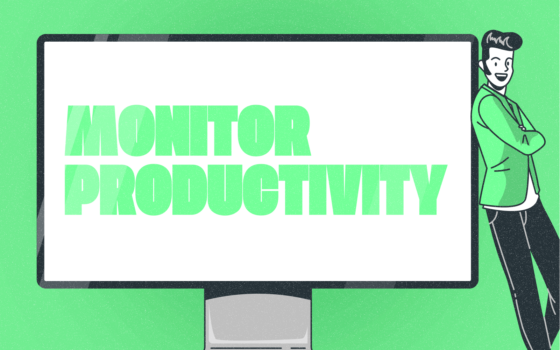Virtual Interview
Understanding Virtual Interviews: A Comprehensive Guide
In the ever-evolving landscape of human resources and recruitment, virtual interviews have emerged as a game-changing tool. As technology continues to reshape the way we work and communicate, it's no surprise that the interview process has also undergone a digital transformation. Virtual interviews, also known as video interviews or remote interviews, have become increasingly prevalent, especially in the wake of global events that have necessitated remote work and social distancing.
This comprehensive guide aims to delve deep into the world of virtual interviews, exploring their benefits, challenges, best practices, and impact on the hiring process. Whether you're an HR professional, a hiring manager, or a job seeker, understanding the nuances of virtual interviews is crucial in today's job market.
What is a Virtual Interview?
A virtual interview is a job interview that takes place remotely, using technology such as video conferencing software, rather than meeting in person. This type of interview allows employers and candidates to connect from different locations, eliminating the need for travel and face-to-face meetings.
Virtual interviews can take various forms, including:
- Live video interviews: Real-time conversations conducted through platforms like Zoom, Skype, or Microsoft Teams.
- Pre-recorded video interviews: Candidates answer pre-set questions on video, which employers review later.
- Phone interviews: While not strictly "virtual," phone interviews are often grouped under this category as they're conducted remotely.
The rise of virtual interviews has been driven by several factors, including advancements in technology, globalization of the workforce, and the need for more efficient and cost-effective hiring processes.
The Evolution of Virtual Interviews
The concept of virtual interviews isn't entirely new. Phone interviews have been a staple of the recruitment process for decades. However, the advent of reliable, high-quality video conferencing technology has revolutionized the way remote interviews are conducted.
In the early 2000s, as internet speeds improved and webcams became more commonplace, companies began experimenting with video interviews. Initially, these were often reserved for high-level positions or situations where travel was prohibitively expensive or time-consuming.
The global financial crisis of 2008 accelerated the adoption of virtual interviews as companies sought to cut costs and streamline their hiring processes. However, it was the COVID-19 pandemic in 2020 that truly catapulted virtual interviews into the mainstream. With in-person meetings suddenly becoming impossible or inadvisable, organizations of all sizes and across all industries quickly pivoted to virtual interviewing.
Today, even as many workplaces return to in-person operations, virtual interviews remain a popular option due to their convenience and efficiency. Many companies now offer candidates the choice between virtual and in-person interviews, recognizing that flexibility in the hiring process can be a key factor in attracting top talent.
Benefits of Virtual Interviews
Virtual interviews offer numerous advantages for both employers and candidates. Let's explore some of the key benefits:
Cost-Effective
One of the most significant advantages of virtual interviews is cost savings. For employers, there's no need to allocate budget for candidate travel expenses or to prepare physical interview spaces. For candidates, the elimination of travel costs can make it feasible to interview for positions that might otherwise be out of reach due to geographical constraints.
Time-Efficient
Virtual interviews can be scheduled more flexibly and conducted more quickly than traditional in-person interviews. This efficiency allows companies to move through the hiring process faster, reducing time-to-hire metrics. Candidates also benefit from this efficiency, as they can often schedule interviews around their existing commitments more easily.
Expanded Talent Pool
By removing geographical barriers, virtual interviews allow companies to access a global talent pool. This is particularly beneficial for organizations looking to diversify their workforce or fill niche positions that require specific skills not readily available locally.
Environmentally Friendly
With no need for travel, virtual interviews contribute to reducing carbon emissions. This aligns with many companies' sustainability goals and can be an attractive feature for environmentally conscious candidates.
Improved Candidate Experience
Many candidates appreciate the convenience and comfort of interviewing from their own space. This can help reduce interview anxiety and allow candidates to present their best selves.
Standardization of the Interview Process
Particularly in the case of pre-recorded video interviews, virtual interviews can help standardize the interview process. All candidates answer the same questions under similar conditions, potentially reducing bias and improving the fairness of the selection process.
Challenges of Virtual Interviews
While virtual interviews offer many benefits, they also come with their own set of challenges. It's important for both employers and candidates to be aware of these potential pitfalls:
Technical Issues
Perhaps the most obvious challenge is the potential for technical difficulties. Poor internet connections, malfunctioning equipment, or software glitches can disrupt the flow of the interview and create stress for both parties.
Limited Non-Verbal Communication
Even with high-quality video, it can be more difficult to pick up on subtle non-verbal cues in a virtual setting. This can make it harder for interviewers to assess a candidate's personality and cultural fit, and for candidates to gauge the interviewer's reactions.
Potential for Distractions
When interviewing from home or other non-office environments, there's a higher risk of interruptions or distractions. Background noises, family members, or pets can potentially disrupt the interview process.
Difficulty Building Rapport
The natural flow of conversation that occurs in face-to-face meetings can be harder to achieve in a virtual setting. This can make it more challenging to build rapport and may impact the overall interview experience.
Technology Barriers
Not all candidates may have access to the necessary technology or a reliable internet connection. This can create equity issues in the hiring process.
Security and Privacy Concerns
As with any online activity, there are potential security risks associated with virtual interviews. Ensuring the privacy and confidentiality of interview data is crucial.
Best Practices for Conducting Virtual Interviews
To maximize the benefits of virtual interviews and mitigate the challenges, consider the following best practices:
Prepare Thoroughly
Just as with in-person interviews, thorough preparation is key. This includes:
- Testing your technology in advance
- Familiarizing yourself with the video platform
- Preparing your questions and interview structure
- Having a backup plan in case of technical issues
Create a Professional Environment
Ensure your background is clean and professional. Use good lighting and position your camera at eye level. Minimize potential distractions in your environment.
Communicate Clearly
Speak clearly and at a moderate pace. Be mindful of potential audio delays. Use non-verbal cues like nodding and smiling to show engagement.
Be Empathetic
Understand that candidates may be nervous or experiencing technical difficulties. Be patient and offer reassurance if needed.
Maintain Eye Contact
Look directly into the camera when speaking to simulate eye contact. This helps create a connection with the candidate.
Provide Clear Instructions
Send candidates detailed instructions about the virtual interview process, including how to join the call, what to expect, and any technical requirements.
Follow Up Promptly
After the interview, follow up with candidates promptly. Provide feedback or next steps in a timely manner.
Tips for Candidates Participating in Virtual Interviews
For job seekers, here are some tips to ace your virtual interview:
Test Your Technology
Ensure your internet connection, camera, and microphone are working properly before the interview. Familiarize yourself with the video platform being used.
Choose a Suitable Location
Find a quiet, well-lit space with a neutral background. Minimize potential interruptions.
Dress Professionally
Dress as you would for an in-person interview. Avoid bright colors or patterns that may be distracting on camera.
Be Punctual
Log in a few minutes early to ensure everything is working correctly.
Maintain Good Posture and Eye Contact
Sit up straight and look into the camera when speaking. This helps you appear engaged and confident.
Prepare Notes
One advantage of virtual interviews is that you can have notes nearby. However, don't rely on them too heavily – maintain natural eye contact.
Practice
Conduct a mock interview with a friend or family member using the same technology you'll use for the real interview.
The Future of Virtual Interviews
As we look to the future, it's clear that virtual interviews are here to stay. Even as many workplaces return to in-person operations, the convenience and efficiency of virtual interviews ensure their continued relevance. Here are some trends we can expect to see:
Hybrid Interview Processes
Many companies are adopting a hybrid approach, using virtual interviews for initial screenings and reserving in-person interviews for final rounds. This allows them to balance the efficiency of virtual interviews with the depth of in-person interactions.
Advanced AI Integration
Artificial Intelligence is increasingly being used in the virtual interview process. From chatbots that conduct initial screenings to AI-powered analysis of candidate responses, we can expect to see more sophisticated technology integration in the future.
Virtual Reality Interviews
As VR technology becomes more accessible, we may see interviews conducted in virtual environments. This could provide a more immersive experience that bridges the gap between virtual and in-person interviews.
Increased Focus on Candidate Experience
As virtual interviews become more common, companies will need to focus on creating positive, engaging experiences for candidates. This might include more interactive elements or virtual office tours.
Enhanced Security Measures
With growing concerns about data privacy, we can expect to see more robust security measures implemented in virtual interview platforms.
Legal and Ethical Considerations
As with any aspect of the hiring process, there are important legal and ethical considerations to keep in mind when conducting virtual interviews:
Equal Opportunity
Ensure that your virtual interview process doesn't discriminate against candidates who may not have access to the necessary technology. Consider offering alternatives or providing resources to level the playing field.
Data Protection
Be transparent about how you'll use and store any data collected during the virtual interview process. Ensure you're compliant with relevant data protection regulations like GDPR or CCPA.
Consent
If you plan to record the interview, make sure you obtain the candidate's consent beforehand.
Accessibility
Consider the needs of candidates with disabilities. Ensure your virtual interview process is accessible and offer accommodations where necessary.
Conclusion
Virtual interviews have revolutionized the hiring process, offering numerous benefits in terms of efficiency, cost-effectiveness, and access to a global talent pool. While they come with their own set of challenges, these can be effectively managed with proper preparation and the right approach.
As we move forward, virtual interviews will likely become an integral part of a more flexible, hybrid hiring process. By embracing this technology and continually refining our approach, we can create more effective, inclusive, and candidate-friendly hiring experiences.
Whether you're an HR professional adapting to this new landscape or a job seeker preparing for your next opportunity, understanding the nuances of virtual interviews is crucial. By staying informed about best practices and emerging trends, you can navigate this digital transformation with confidence and success.
Remember, at its core, an interview – whether virtual or in-person – is about making a human connection. While the medium may have changed, the fundamental goal remains the same: to find the right fit between candidate and company. With thoughtful implementation and continuous improvement, virtual interviews can be a powerful tool in achieving this goal.


